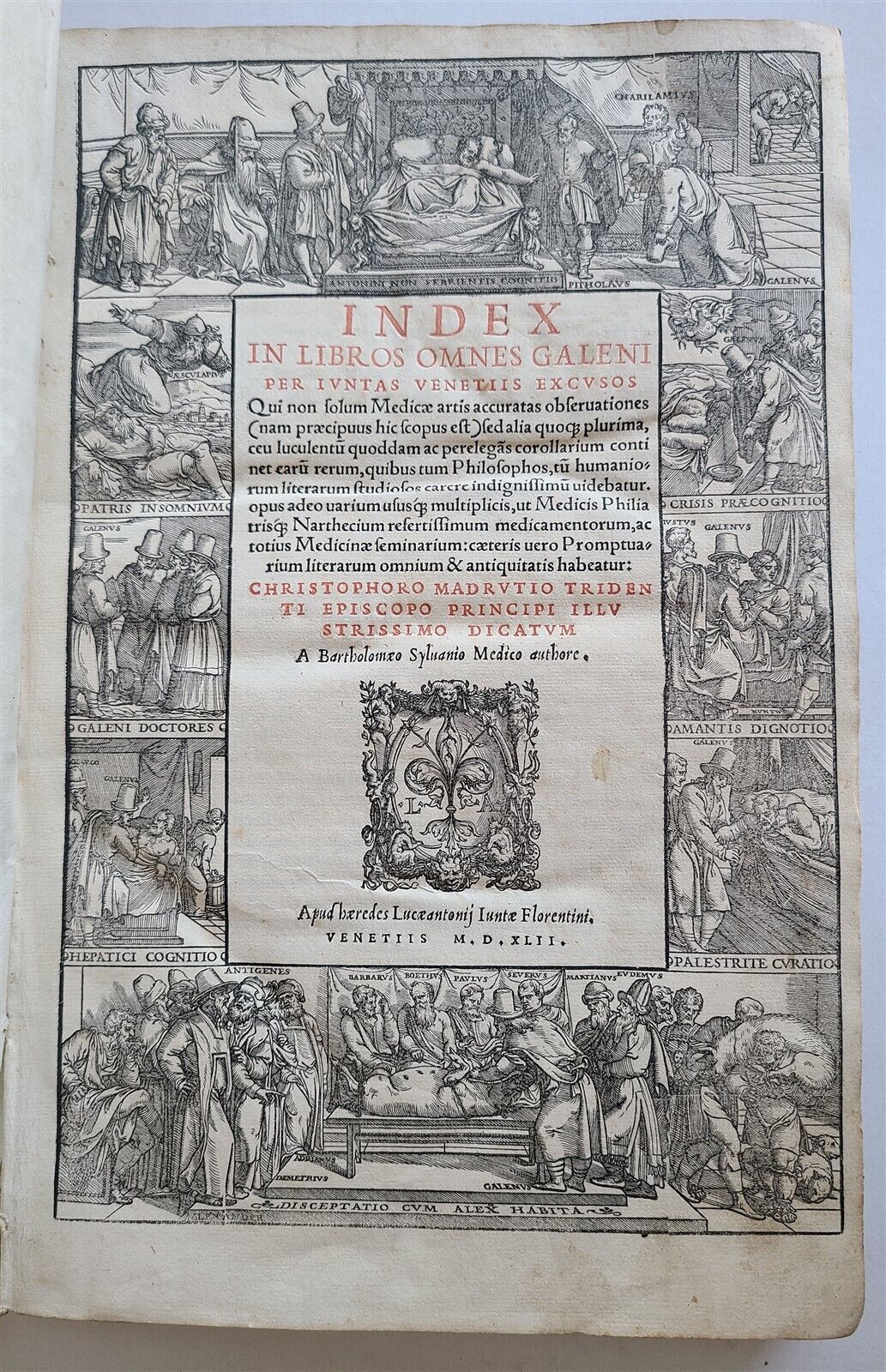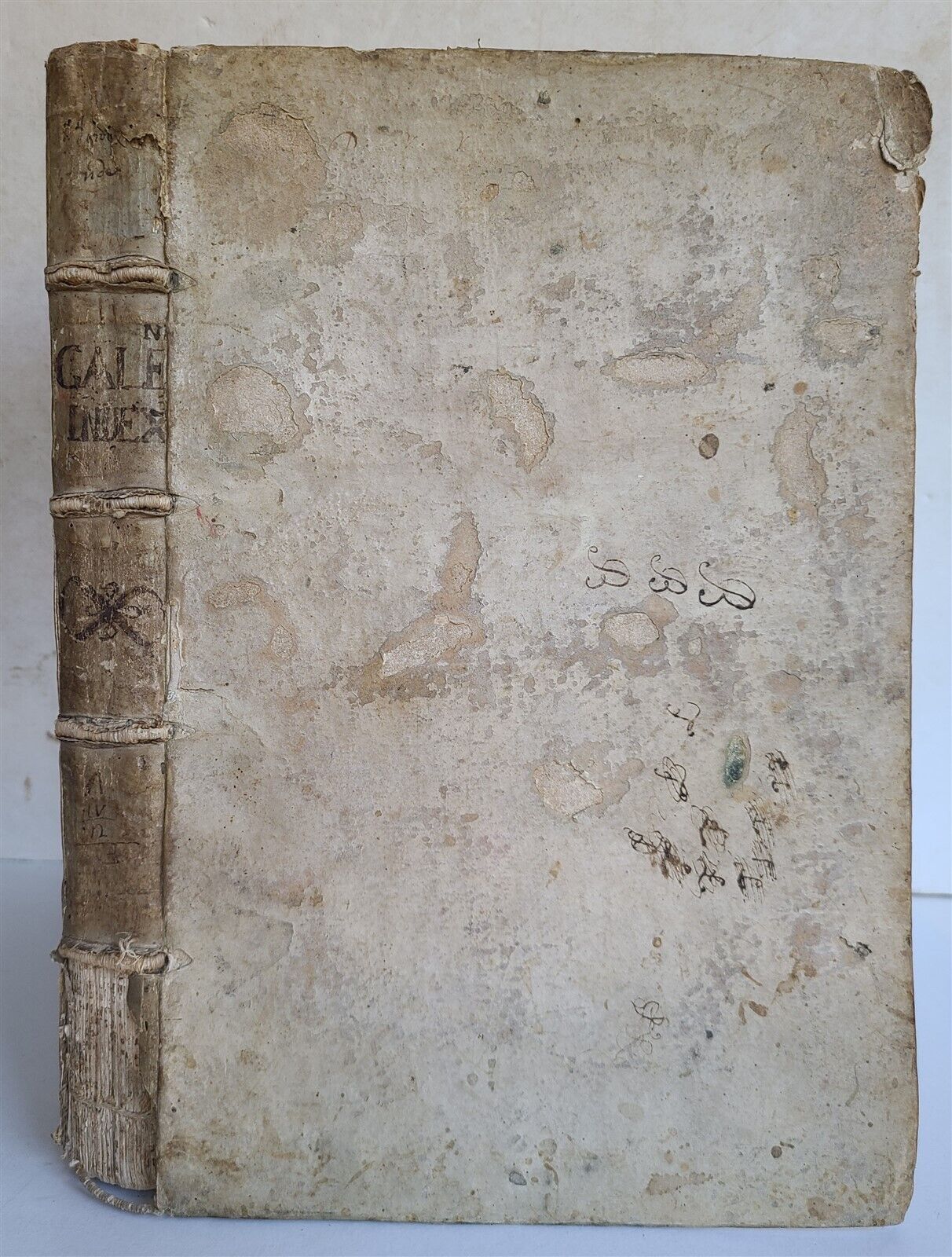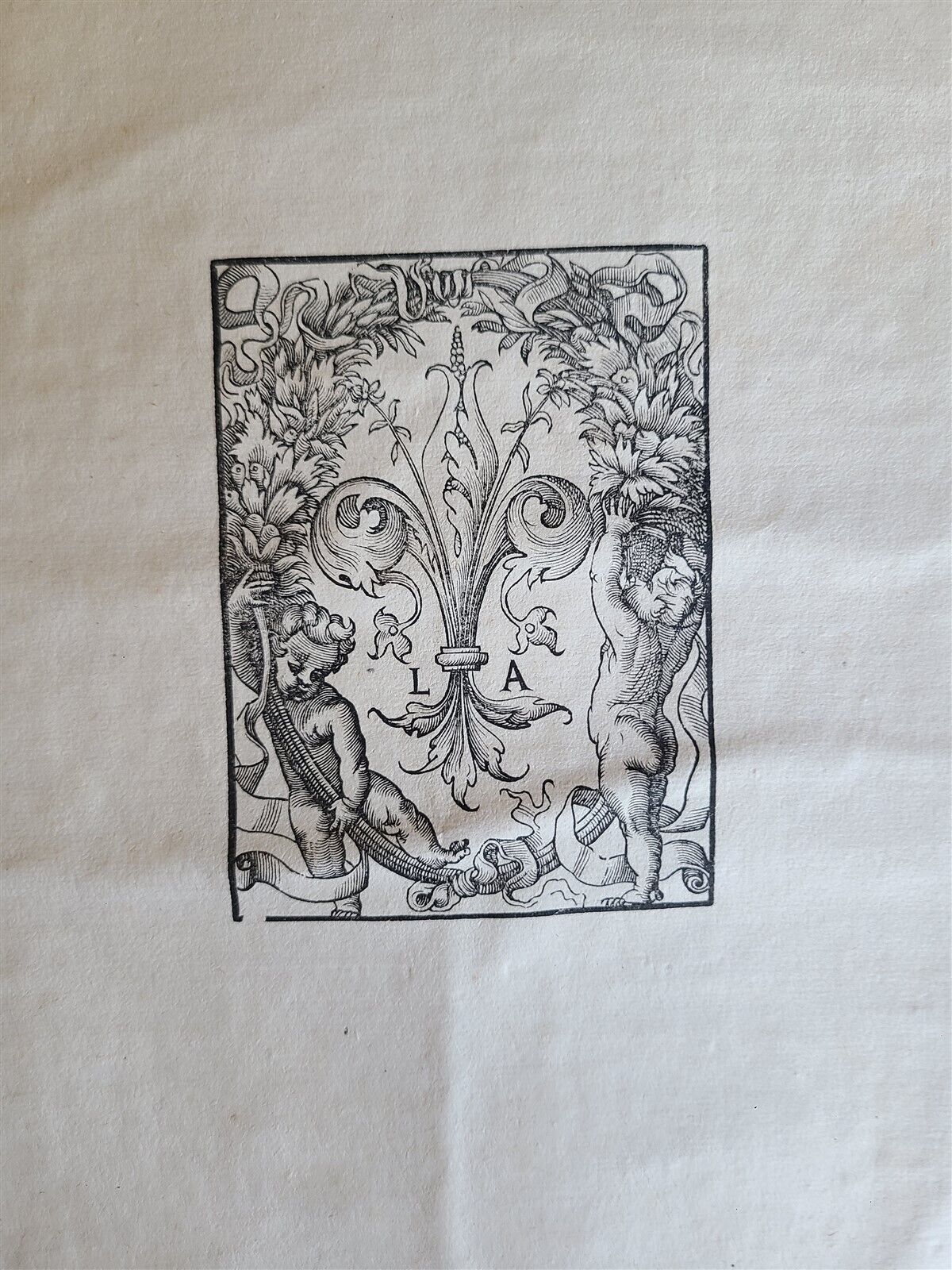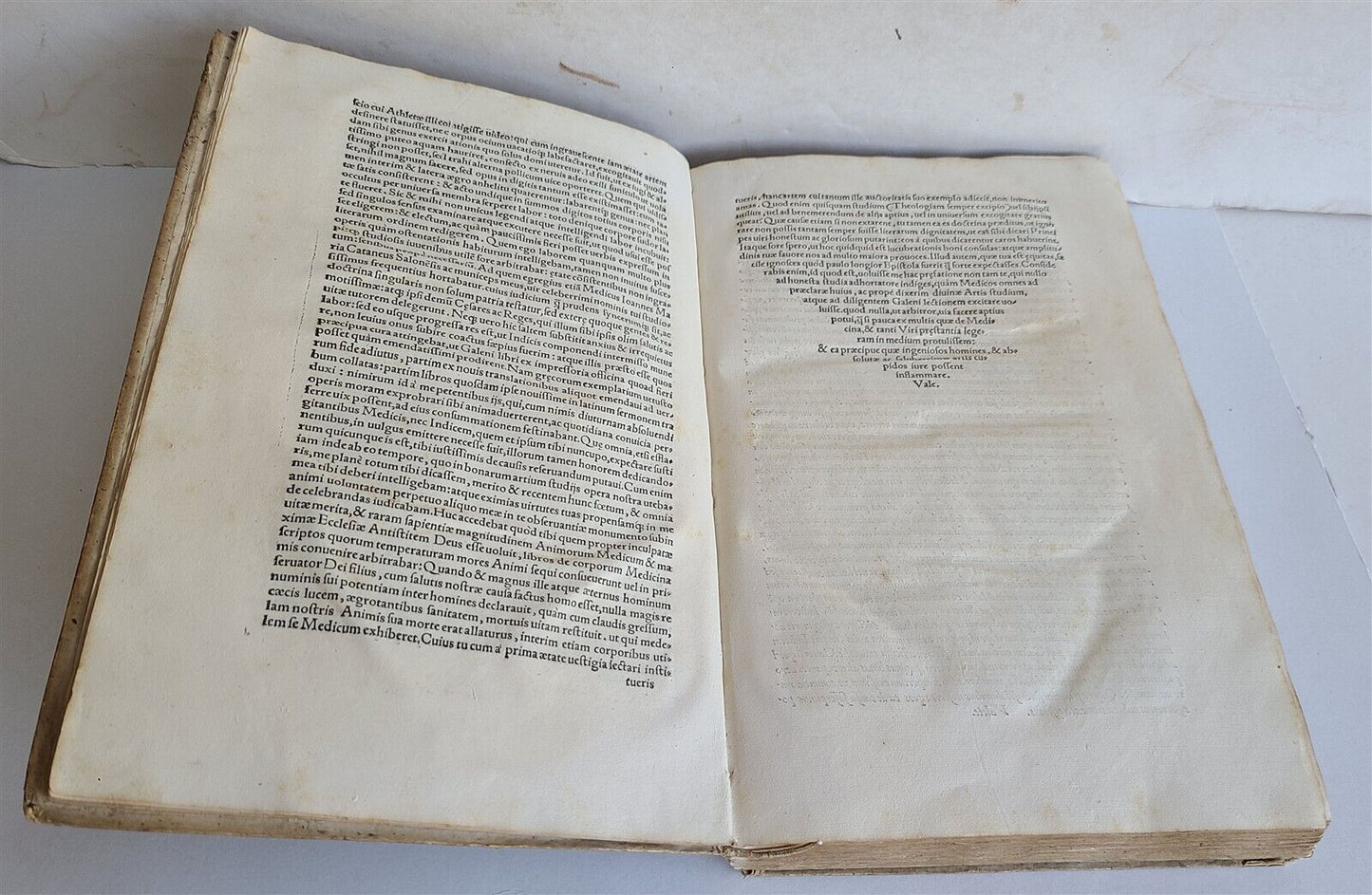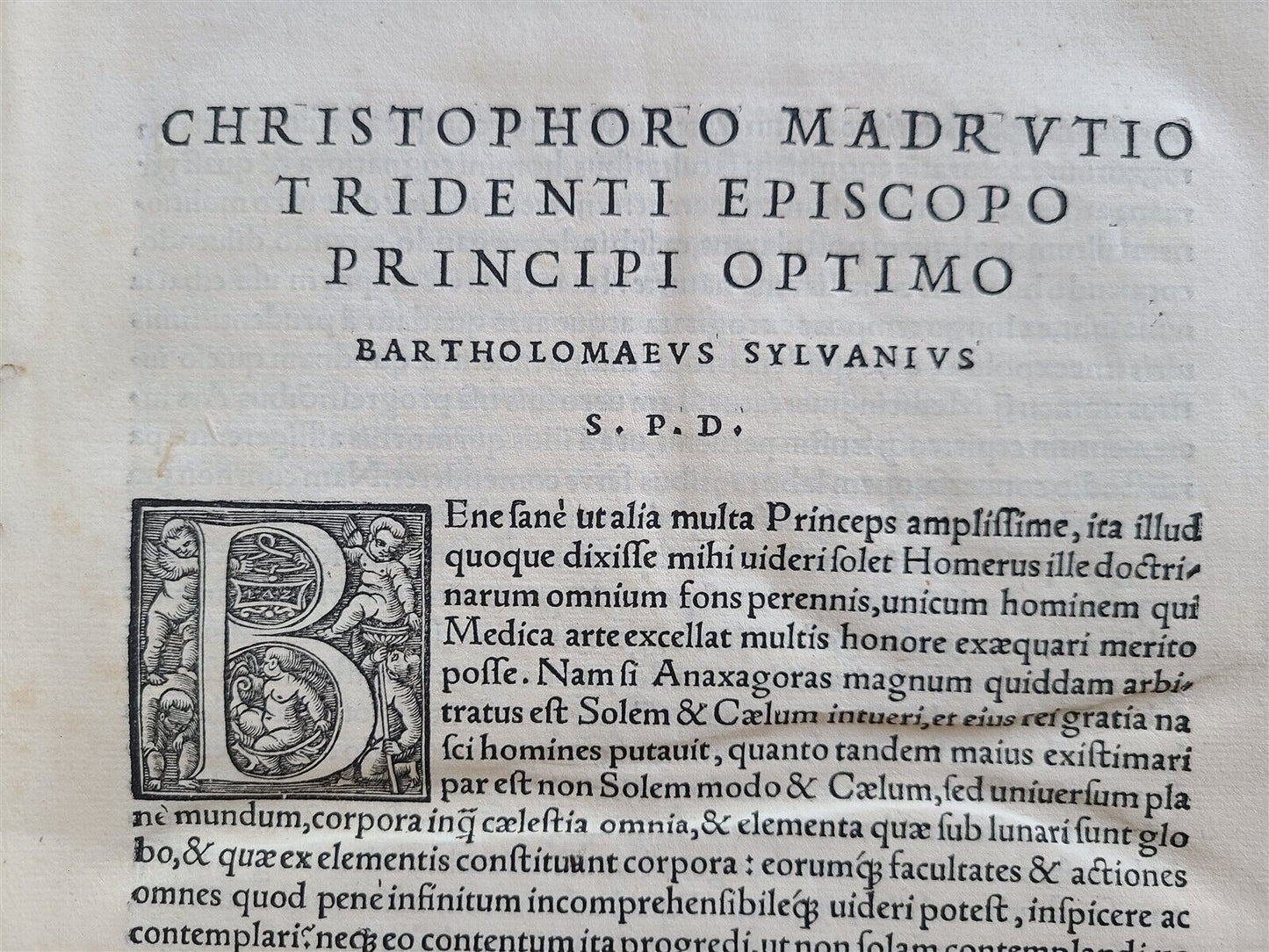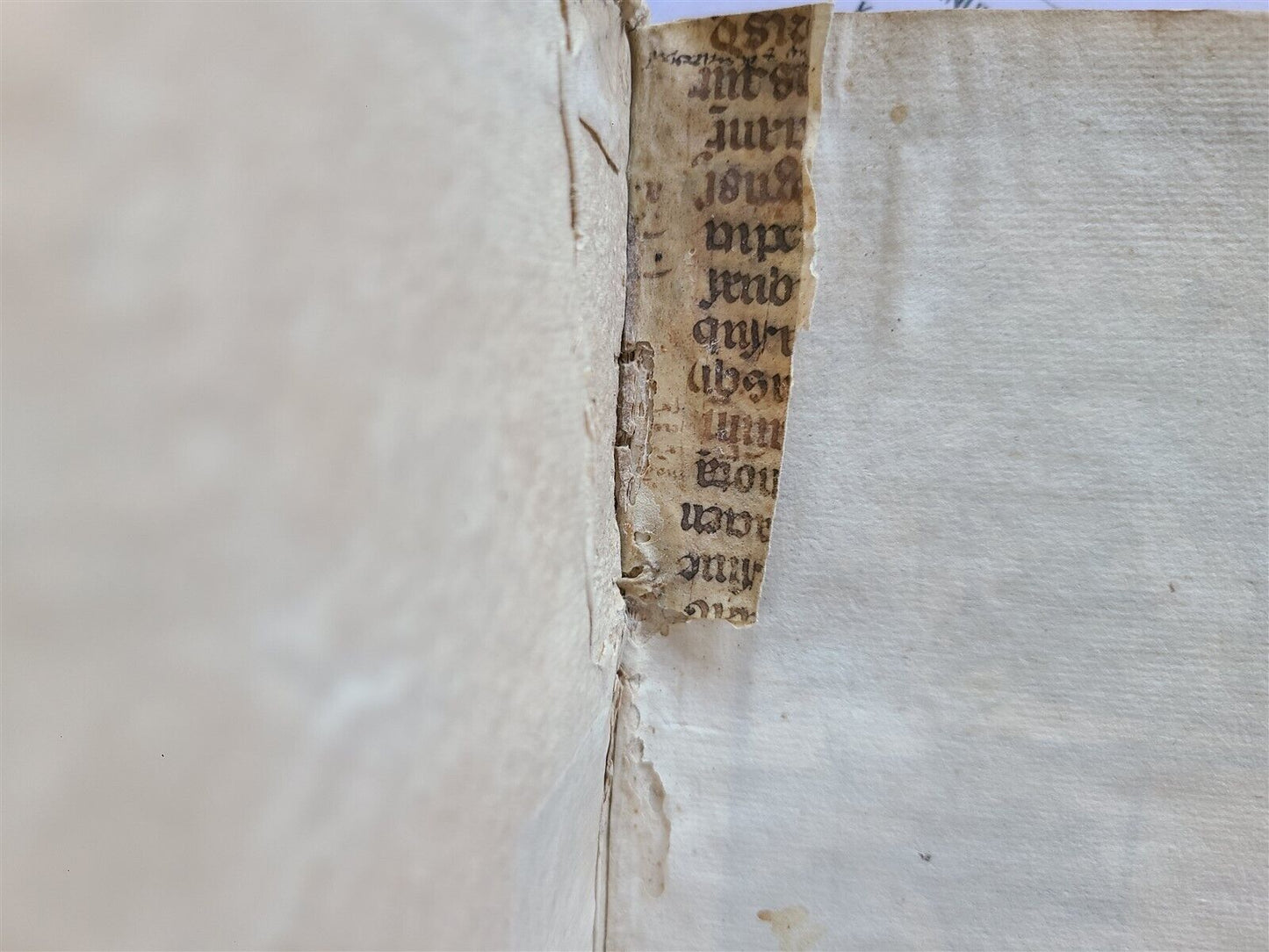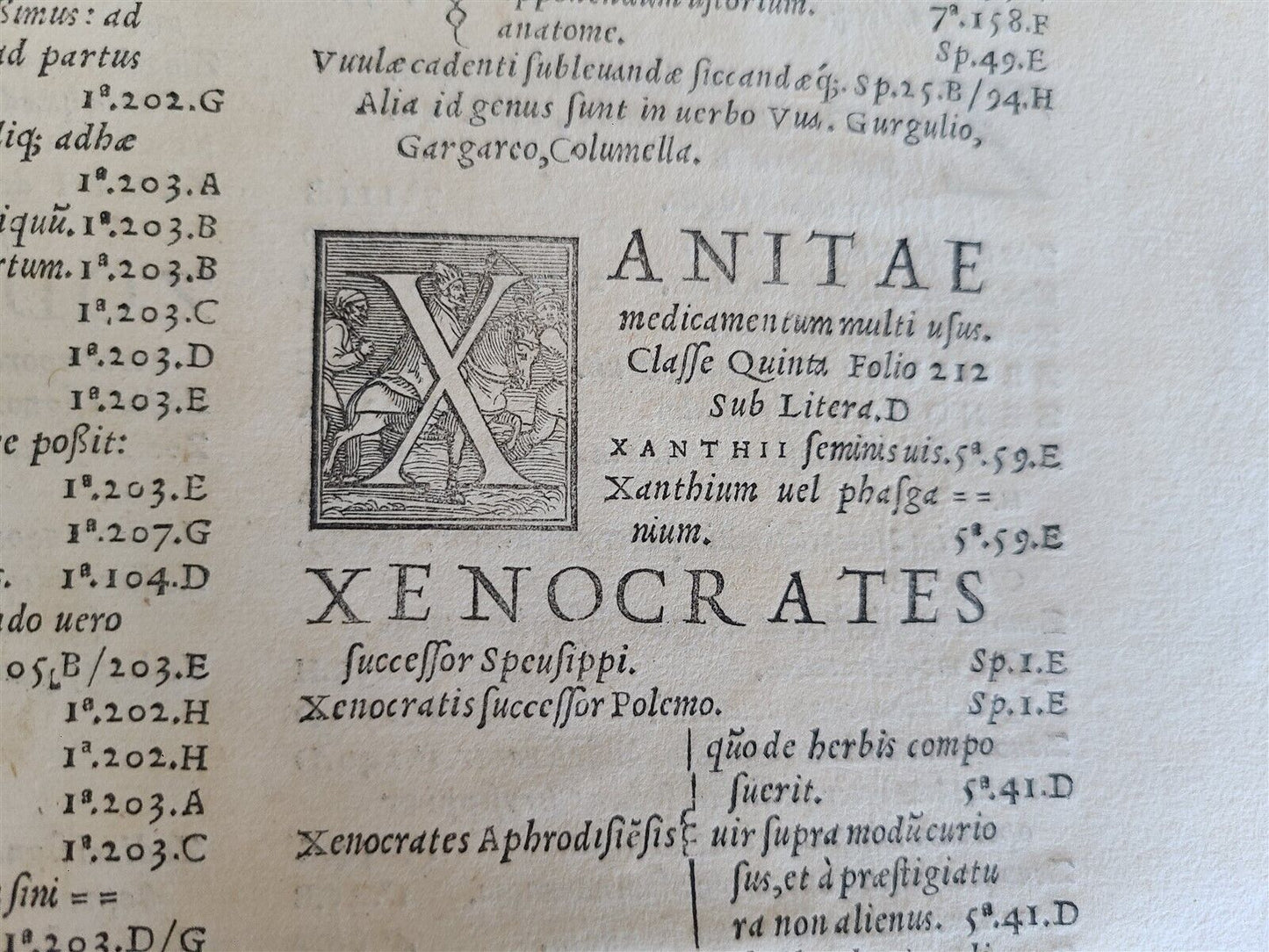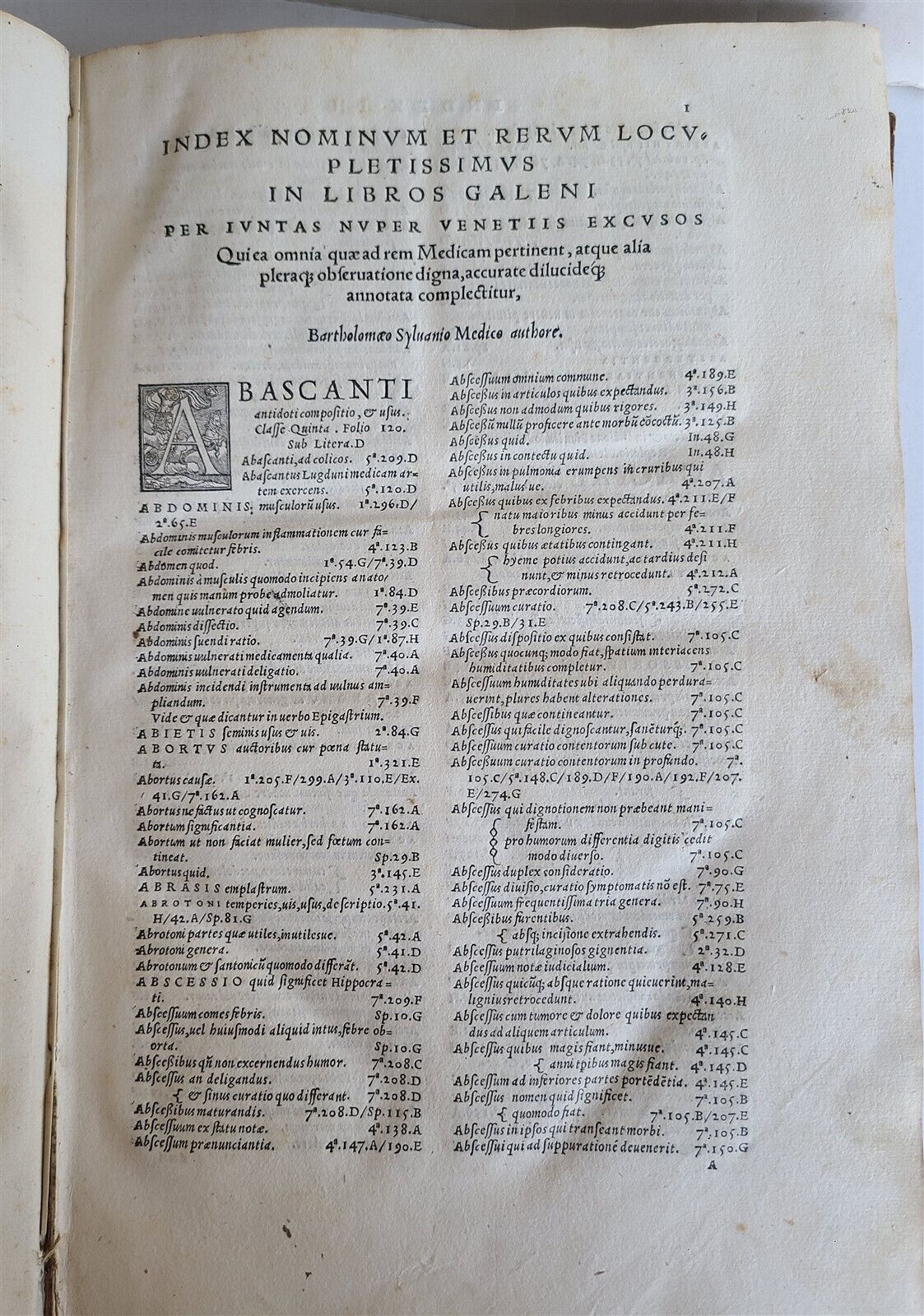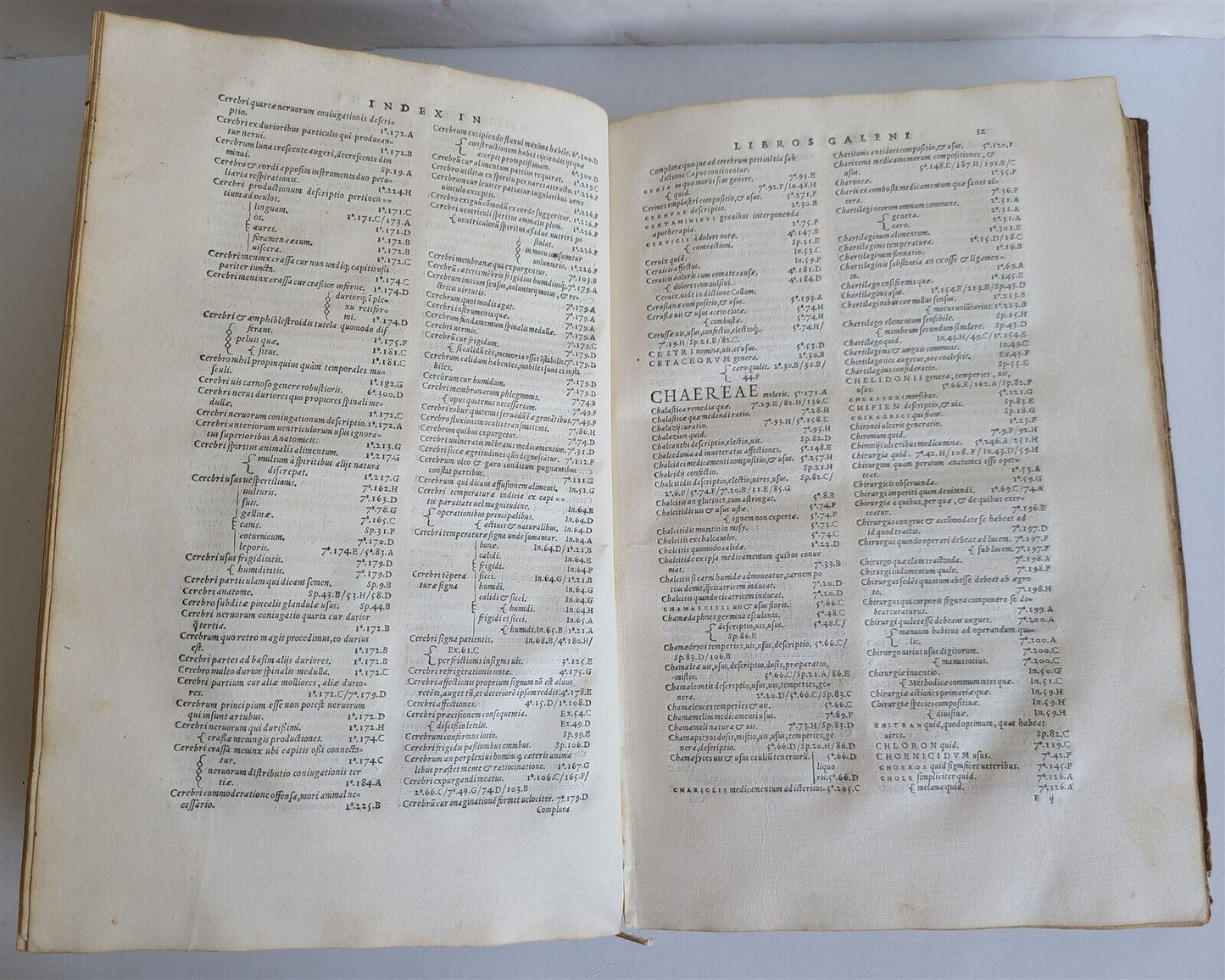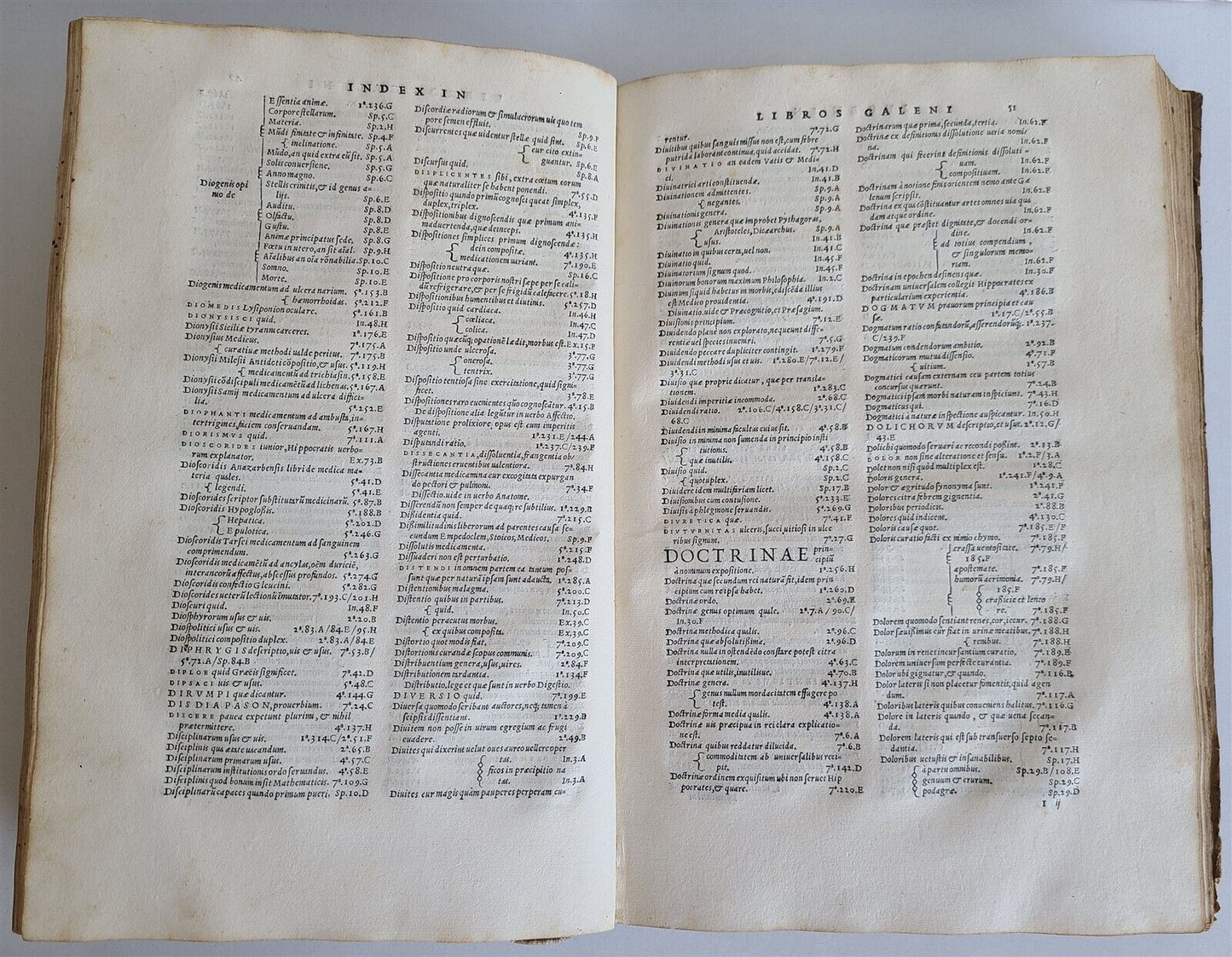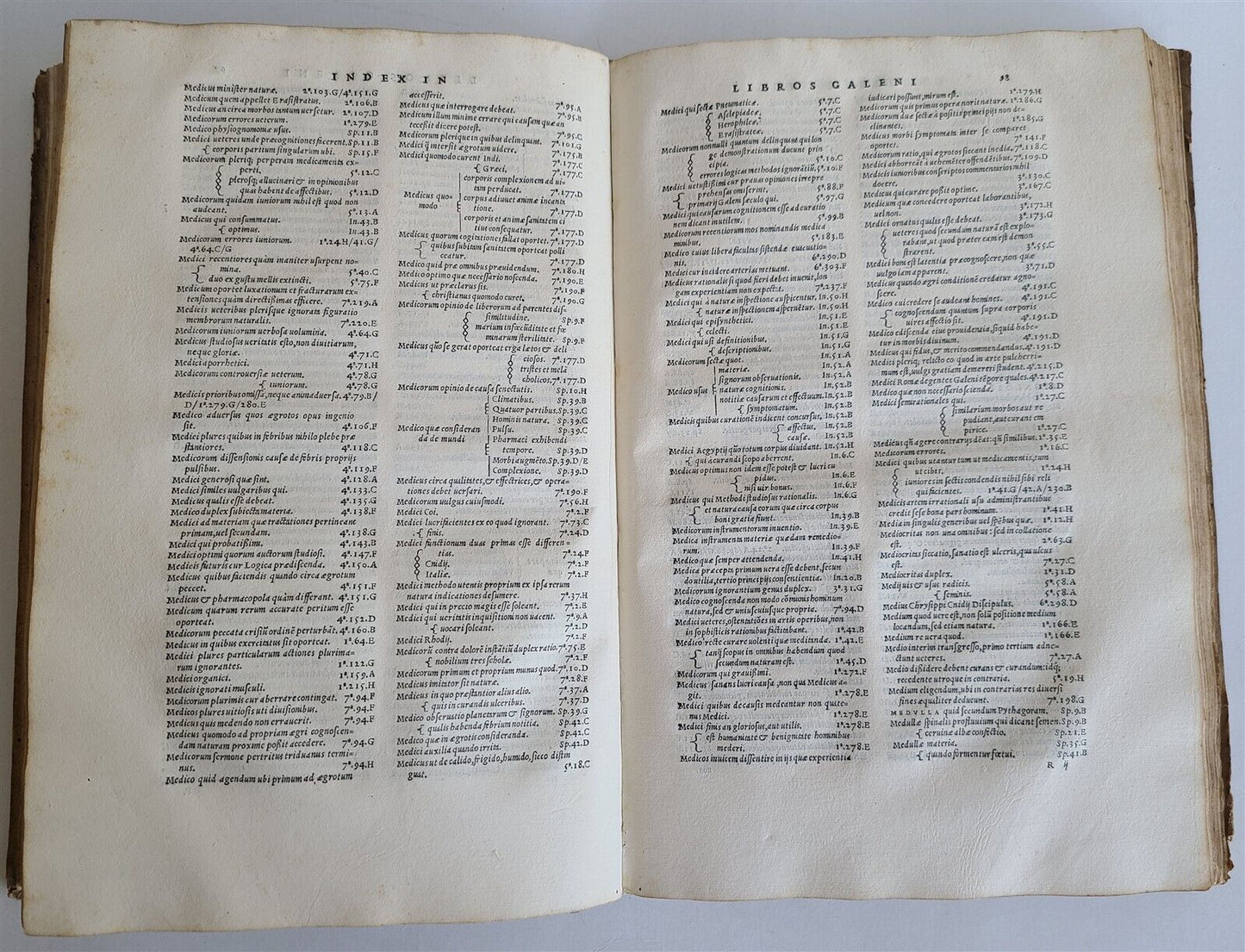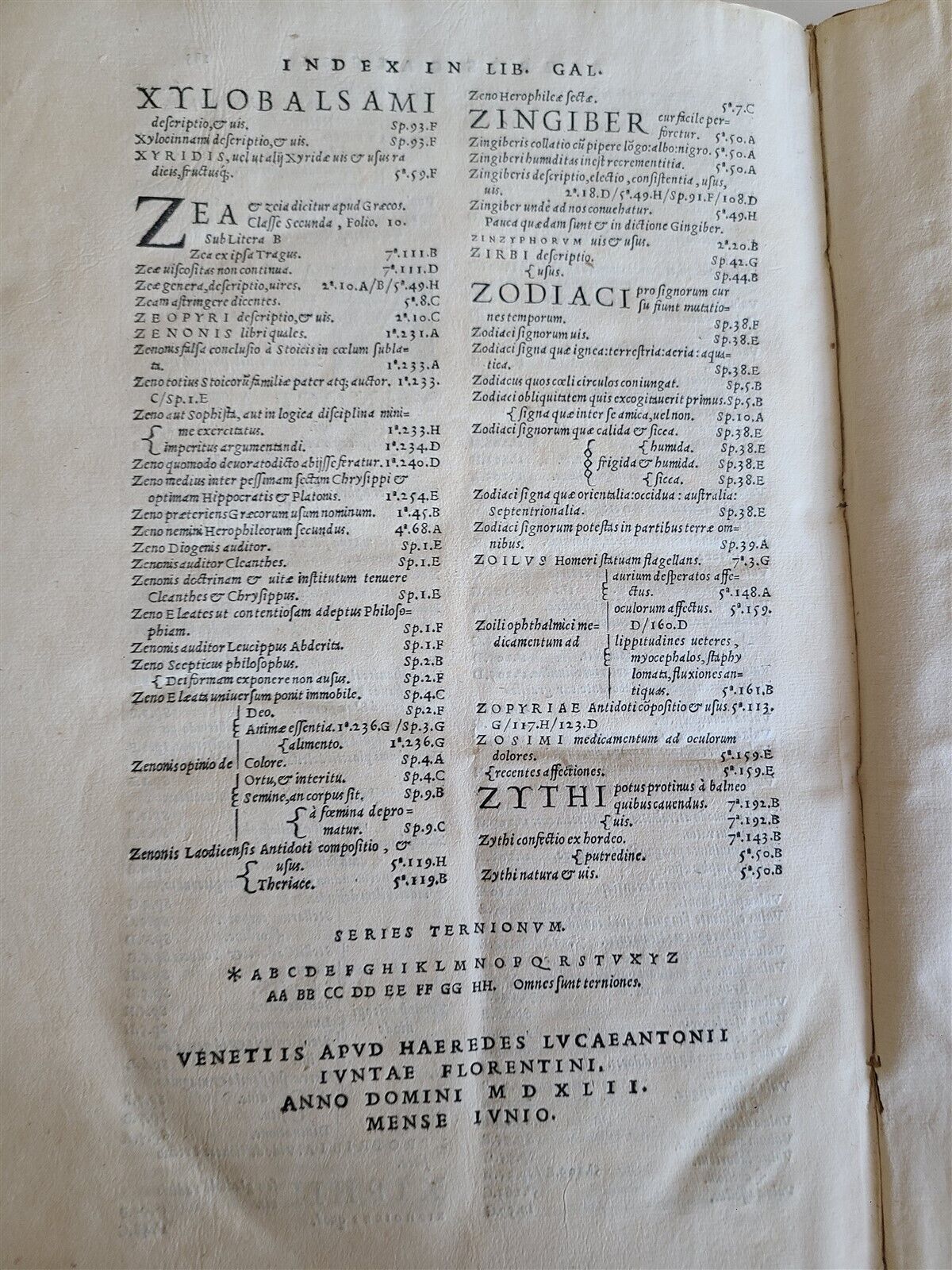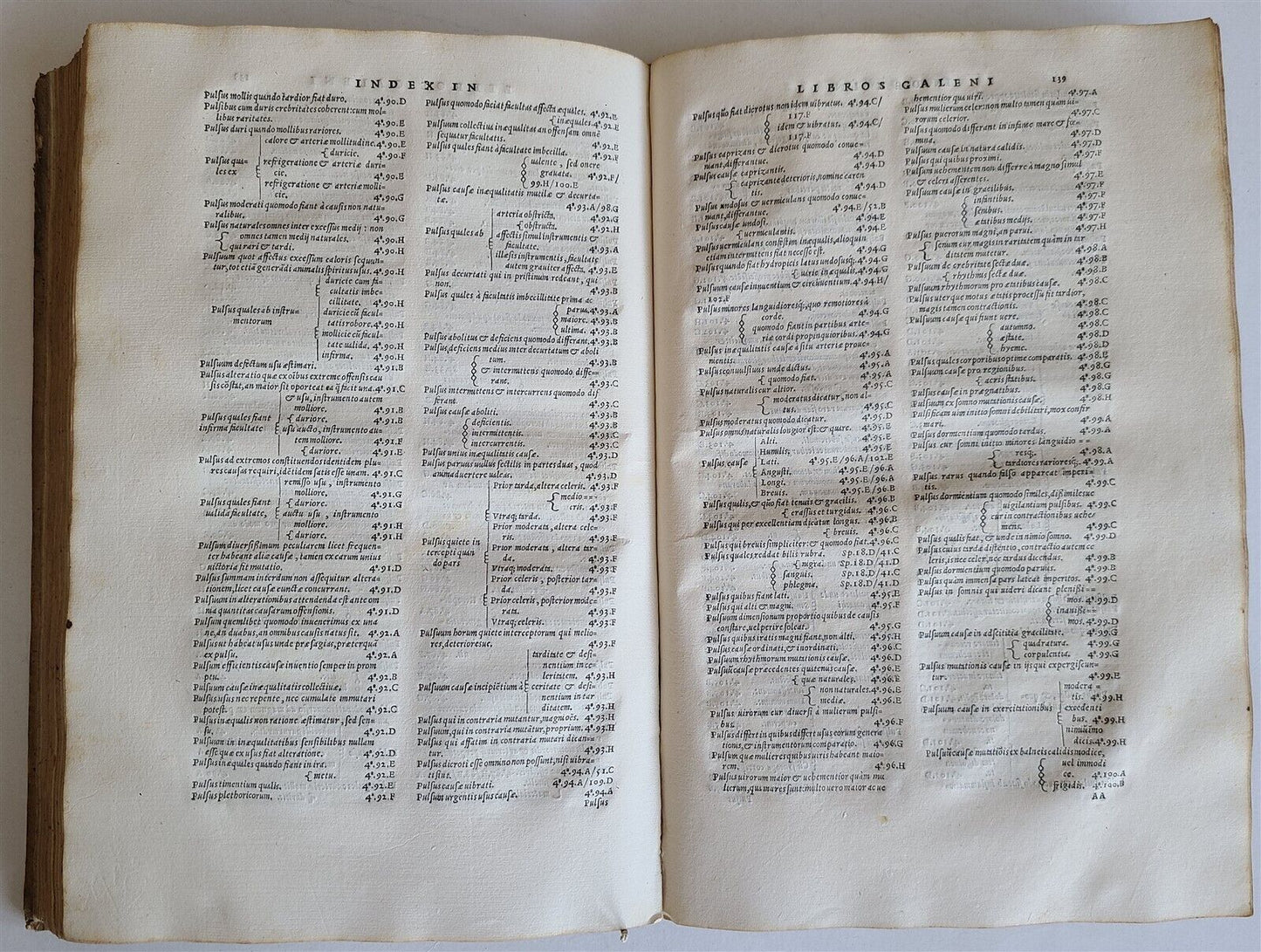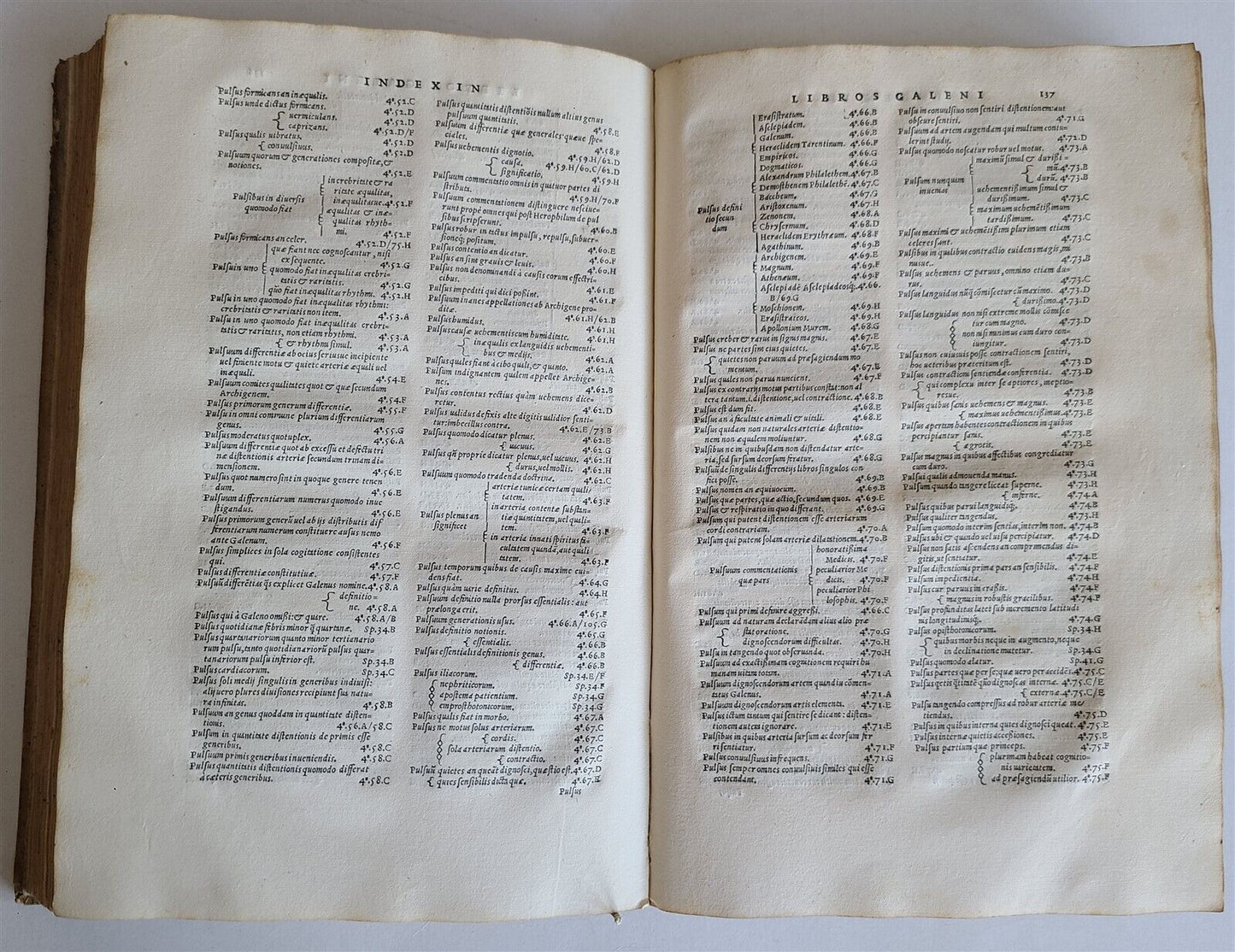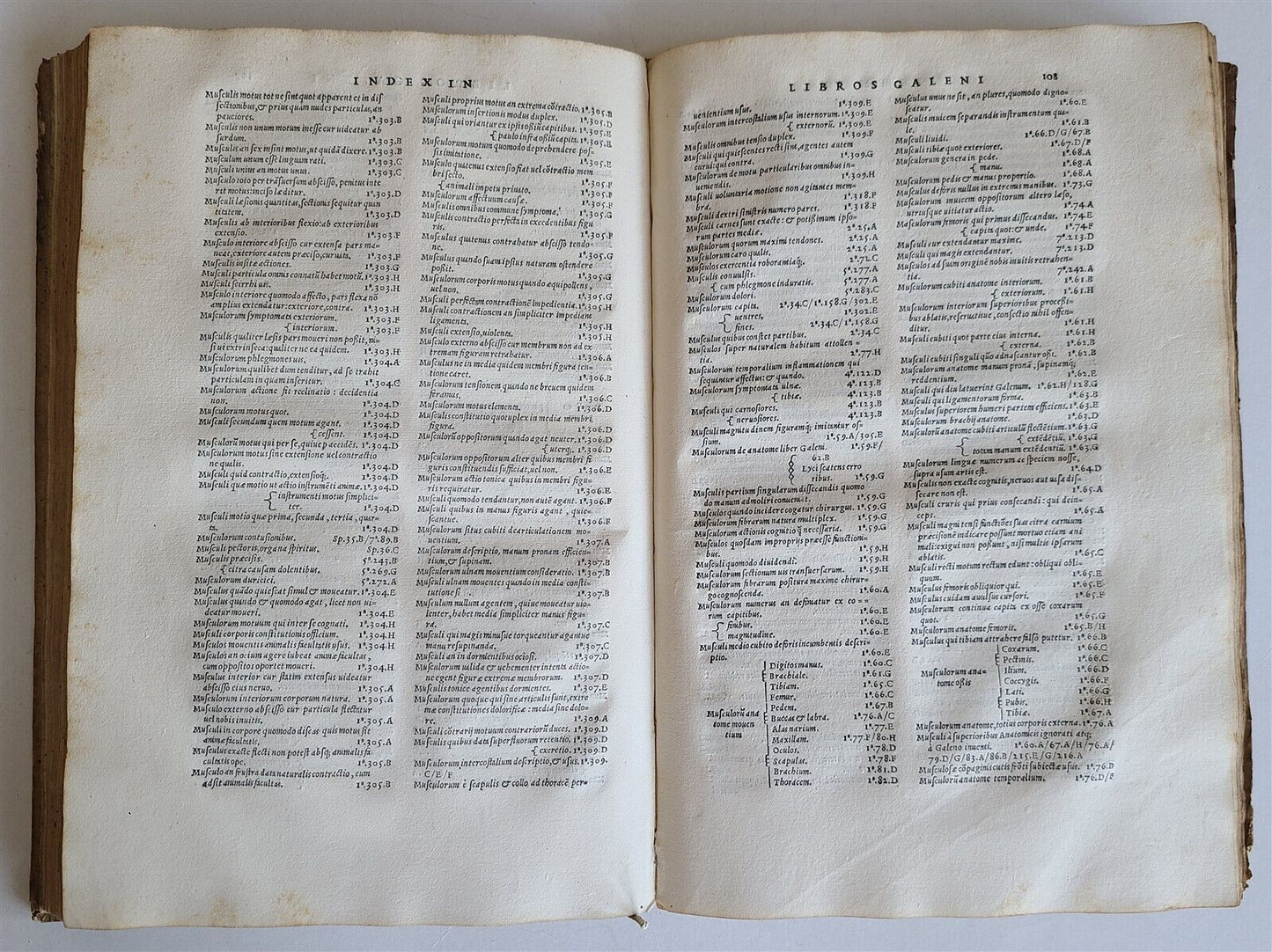Motka
1542 GUINTI'S INDEX of GALEN'S WORKS antique FOLIO 16th century MEDICAL
1542 GUINTI'S INDEX of GALEN'S WORKS antique FOLIO 16th century MEDICAL
Regular price
$549.50 USD
Regular price
$785.00 USD
Sale price
$549.50 USD
Unit price
per
Couldn't load pickup availability
Galenus ClaudiusIndex in libros omnes GALENIper Iuntas Venetiis Excusos... A Bartholomaeo Sylvanis medico authore. Venice, for L.A. Giunta heirs ; 1542 Small folio: 9 by 13.5"title page with historiated woodcut frame and printer's device at the colophon 6 lvs., 185 lvs, 1 leaf. Original full vellum with manuscript title to the spineBinding with damages, very good interior, a few occasional stainsWide-margined copy. Text in Latin=====================================GALEN [Galen of Pergamon] (129 - circa 216) was a physician, surgeon and philosopher in the Roman Empire. Arguably the most accomplished of all medical researchers of antiquity, Galen influenced the development of various scientific disciplines, including anatomy, physiology, pathology, pharmacology, and neurology, as well as philosophy and logic. Galen may have produced more work than any author in antiquity. So profuse was Galen's output that the surviving texts represent nearly half of all the extant literature from ancient Greece. Galen's understanding of anatomy and medicine was principally influenced by the then-current theory of humorism (also known as the theory of the four humors: black bile, yellow bile, blood, and phlegm), as advanced by ancient Greek physicians such as Hippocrates. Galen's views dominated and influenced Western medical science for more than 1,300 years. His anatomical reports remained uncontested until 1543, when printed descriptions and illustrations of human dissections were published by Andreas Vesalius. Galen's original Greek texts gained renewed prominence during the early modern period. In the 1530s, Belgian anatomist and physician Andreas Vesalius took on a project to translate many of Galen's Greek texts into Latin. Vesalius's most famous work, De humani corporis fabrica, was greatly influenced by Galenic writing and form. Galen's writings were shown by Vesalius to describe details present in monkeys but not in humans, and he demonstrated Galen's limitations through books and hands-on demonstrations despite fierce opposition from orthodox pro-Galenists such as Jacobus Sylvius.=====================================Text in Latin===============Please see my other auctions Thank You
Refund Policy: We will issue a FULL REFUND, 100% money back if you are not satisfied with your purchase. Items must be returned to us within 20 days in order to receive a refund or replacement. Buyer is responsible for shipping costs.
----------------------------------------------------------------------------------------------------------------------------------------------------------------------------------------------------------------------------------------------------------------------------------------------------------------------------------------------------------------------------------------------------------------------------------------------------------------------------------------------------------------------------------------------------------------------------------------------------------------------------------------------------------------------------------------------------------------------------------------------------------------------------------------------------------------------------------------------------------------------------------------------------------------------------------------------------------------------------------------------------------------------------------------------------------------------------------------------------------------------------------------------------------------------------------------------------------------------------------------------------------------------------------------------------------------------------------------------------------------------------------------------------------------------------------------------------------------------------------------------------------------------------------------------------------------------------------------------------------------------------------------------------------------------------------------------------------------------------------------------------------------------------------------------------------------------------------------------------------------------------------------------------------------------------------------------------------------------------------------------------------------------------------------------------------------------------------------------------------------------------------------------------------------------------------------------------------------------------------------------------------------------------------------------------------------------------------------------------------------------------------------------------------------------------------------------------------------------------------------------------------------------------------------------------------------
Galenus Claudius
Index in libros omnes GALENI
per Iuntas Venetiis Excusos...
A Bartholomaeo Sylvanis medico authore.
Venice, for L.A. Giunta heirs ; 1542
Small folio: 9 by 13.5"
title page with historiated woodcut frame and printer's device at the colophon
6 lvs., 185 lvs, 1 leaf.
Original full vellum with manuscript title to the spine
Binding with damages, very good interior, a few occasional stains
Wide-margined copy.
Text in Latin
=====================================
GALEN [Galen of Pergamon] (129 - circa 216) was a physician, surgeon and philosopher in the Roman Empire. Arguably the most accomplished of all medical researchers of antiquity, Galen influenced the development of various scientific disciplines, including anatomy, physiology, pathology, pharmacology, and neurology, as well as philosophy and logic. Galen may have produced more work than any author in antiquity. So profuse was Galen's output that the surviving texts represent nearly half of all the extant literature from ancient Greece. Galen's understanding of anatomy and medicine was principally influenced by the then-current theory of humorism (also known as the theory of the four humors: black bile, yellow bile, blood, and phlegm), as advanced by ancient Greek physicians such as Hippocrates. Galen's views dominated and influenced Western medical science for more than 1,300 years. His anatomical reports remained uncontested until 1543, when printed descriptions and illustrations of human dissections were published by Andreas Vesalius. Galen's original Greek texts gained renewed prominence during the early modern period. In the 1530s, Belgian anatomist and physician Andreas Vesalius took on a project to translate many of Galen's Greek texts into Latin. Vesalius's most famous work, De humani corporis fabrica, was greatly influenced by Galenic writing and form. Galen's writings were shown by Vesalius to describe details present in monkeys but not in humans, and he demonstrated Galen's limitations through books and hands-on demonstrations despite fierce opposition from orthodox pro-Galenists such as Jacobus Sylvius.
=====================================
Text in Latin
===============
Please see my other auctions
Thank You
Refund Policy: We will issue a FULL REFUND, 100% money back if you are not satisfied with your purchase. Items must be returned to us within 20 days in order to receive a refund or replacement. Buyer is responsible for shipping costs.
Powered by SixBit's eCommerce Solution
View full details
- Topic:Medicine
- Binding:Vellum
- Subject:Science & Medicine
- Language:Latin
- Original/Facsimile:Original
- Year Printed:1542
